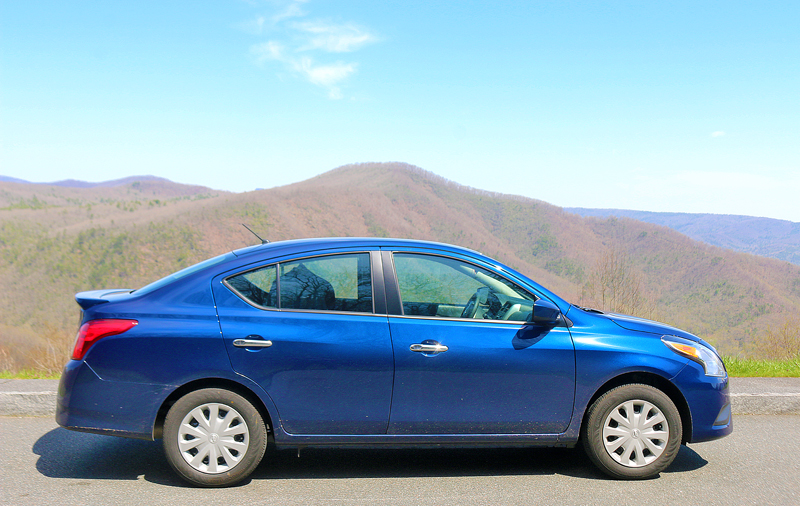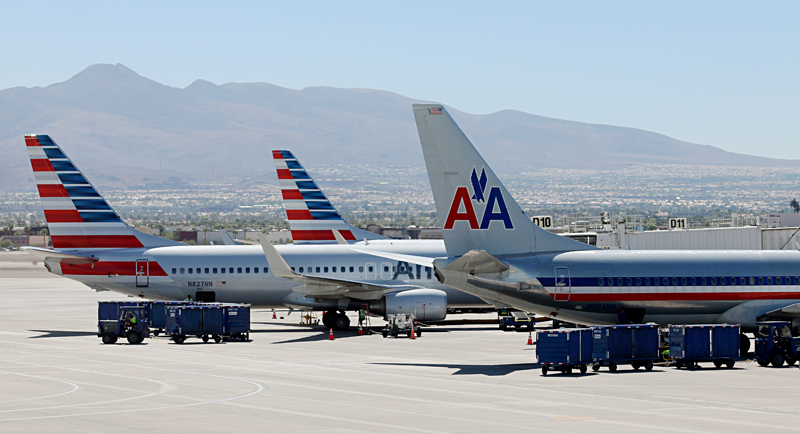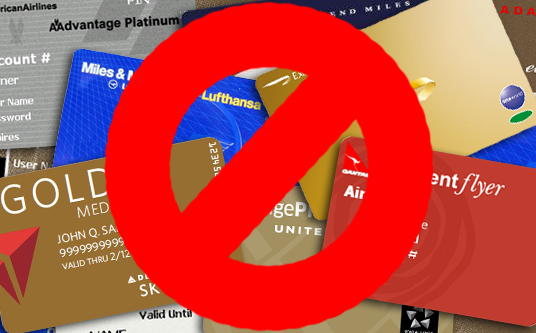The general perception of frequent travel loyalty programs over the years has been one of devaluation and frustration — to the point of whether or not the word loyalty should even be used anymore — and as a result, some members have been vocal about their anger with threats of never patronizing the company to which the offensive frequent travel loyalty program belongs…
Don’t Cut Your Nose Off to Spite Your Face With Frequent Travel Loyalty Programs
…and if you are one of those people, you may want to reconsider that stance, as you may be “cutting your nose off to spite your face” — meaning that you may be engaging in a needlessly self-destructive overreaction to a problem in which you stand to lose more than the cause of the issue. Rather, you — actually, we all — need to be smarter and more informed about the current state of frequent travel loyalty programs.

First, realize that each space in the travel industry is an oligopoly: the commercial aviation industry in the United States has consolidated significantly over the years — and when one airline implements a change, the others usually catch the lemming mentality and follow with something similar. Although arguably not as obvious or as rampant, the lodging and rental car industries are essentially similar — especially as greater than 170 brands of hotel and resort properties are currently operated by nine lodging companies; and at least 14 brands are operated by only three rental car companies.
In other words, you may not have as many choices as you might have thought; so running away is not always the answer.
Why Do You Really Patronize a Company?
I thought about all of the calls to boycott such companies as Hertz and Hilton due to what have been perceived as significant devaluations in their frequent travel loyalty programs: the number of points to redeem for Hertz Gold Plus Rewards vehicle rentals have increased by as much as 81.82 percent, a more restrictive Hertz Gold Plus Rewards point usage cancellation policy is suddenly in effect, and the redemption of Hertz Gold Plus Rewards points for discounts of vehicle rentals have quietly disappeared; and reports of the number of points to redeem for Hilton Honors rewards at an unknown number of hotel and resort properties have increased by what seems to be random — yet significant, in many cases — amounts…
…and as much as I am not happy with those developments, I did realize that I do not patronize Hertz and Hilton because of their frequent travel loyalty programs.
I had started renting more regularly from Hertz a few years ago because the company has “local edition” facilities which are located in fairly convenient areas near where I am based; and I have enjoyed great rates for vehicle rentals.

For example, I rented a Nissan Versa sedan for an entire week last year at the total cost of $98.06, which in and of itself is a great deal — but to my surprise, the total cost lowered to $93.76…
…until I picked up the car, when the rate dropped further to $91.05 for the week. The service at the facility was nearly flawless, the car was fully loaded with every convenience that I could want and more, and the odometer had fewer than 600 miles in total clocked on it — meaning that it was practically a brand new car.
How can I complain about that?

As for Hilton, the company has treated me well over the years — and not because I write for The Gate. I rarely have issues whenever I have dealt with the corporate office and stays at hotel and resort properties with Hilton worldwide — and when I do have an issue, it has always been resolved at least to my satisfaction; and at times, beyond my expectations. I have always enjoyed the benefits conferred upon me whenever I have earned elite level status within the Hilton Honors frequent guest loyalty program. Room rates have consistently been reasonable for the most part — sometimes too rich for my blood; and sometimes ridiculously lower priced that I expected — but I have almost always received value in return for my patronage.
I cannot complain about that either.
My Thoughts and Experiences
Do I stop patronizing Hertz and Hilton because of the perceived significant negative changes which they have implemented to their respective frequent travel loyalty programs?
In my opinion, the answer is no.
The reason why is because we tend to look at a company as one entity — and thanks to marketing and branding efforts, rightfully so — so when a frequent travel loyalty program undergoes changes which are perceived as unfriendly to its members, the tendency is to automatically want to stop conducting business with the company as a whole altogether…

…but even though the SkyMiles frequent flier loyalty program is now substantially less valuable and useful to me than it was years ago before radical changes were implemented to it, the service provided by the front line employees of Delta Air Lines is still top notch, in my opinion. While I will no longer go out of my way to inconvenience myself to be a passenger aboard an airplane operated by Delta Air Lines for the sake of the SkyMiles program, I will still patronize Delta Air Lines with no hesitation whenever the opportunity arises.
However, I draw the line when a company directly reneges on a deal on which all parties agreed — or is too inflexible with its policies which seem to defy common sense. One example is that I have avoided using Alamo Rent a Car for many years since the company inexplicably reneged on the terms of a deal on which I contracted with them; and they would not relent despite the proof I had of that deal…
…and another example is that I also no longer rent from Enterprise Rent A Car as a result of this policy pertaining to returning a car after hours, which cost me an extra day to rent a car which I only needed for one day, as management would not budge. On occasion, I still rent from National Car Rental as an Emerald Aisle member even though it is owned by the same corporation as both Alamo Rent a Car and Enterprise Rent A Car; but other than at airports, their locations are not nearly as convenient for me.

I generally avoid Wyndham Hotels & Resorts not only because of its history with how implementations of policies have been egregiously handled with its Wyndham Rewards frequent guest loyalty program; but also because I have no interest in staying at most of the lodging brands within its portfolio. In other words, I do not see a value proposition for me in patronizing Wyndham Hotels & Resorts; and my last stay at a Wyndham hotel property was nothing special or memorable.
Summary
Decisions on whether to continue to patronize a company are based on personal preferences, actual experiences, circumstantial information, trust, and a plethora of other factors. My decision to no longer do business with a company is generally based on either whether a company which directly and significantly impacts me in a negative enough way; or if the overall value of doing business with a company has diminished in value to a point at which continuing to patronize a company is no longer worth my time, effort or money.

In my opinion, a frequent travel loyalty program is not the primary reason to patronize a company — not even when American Airlines launched the first frequent flier loyalty program back in 1981. Rather, it is designed to not only reward you for demonstrating your loyalty to the company in the past; but even more importantly: to encourage you to continue — and, perhaps, even strengthen — your loyalty into the future.
How important is your trust in a frequent flier loyalty program, anyway?
You ultimately have to do what is right for you; and only you can arrive at that final determination. Maintain perspective and adjust your expectations — and quit that loyalty program mindset once and for all. Perhaps launch your own frequent travel loyalty program. Be a free agent, if you must. Take all of the information you read from weblogs, frequent flier communities, and the corporate marketing departments of the companies with whom you do business; and carefully examine the value proposition for you…
…because sometimes ending a business relationship could wind up impacting you in a negative way more than it impacts the company.
In other words: do not cut your nose off to spite your face. Do what is best for you.
Graphic illustration ©2019 Brian Cohen. All photographs ©2014, ©2015, ©2017 and ©2018 by Brian Cohen.
